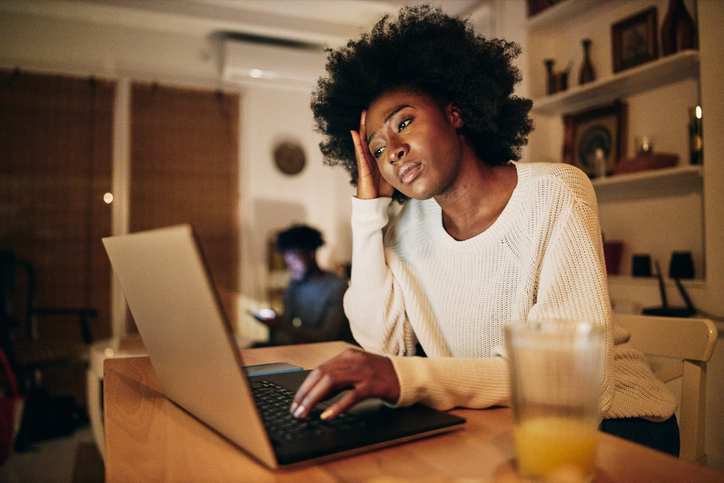
FluxFactory
Unemployment for Black Americans reached higher than normal rates in August, giving an alarming picture of the economic hardship the community could potentially face as the nation slowly recovers from the COVID-19 pandemic and Black women are the most impacted.
According to CNBC, the August jobs report revealed that while the unemployment rate dropped to 5.2 percent from 5.4 percent, Black workers struggled to return to the workforce with unemployment rates rising to 8.8 percent last month compared to 8.2 percent in July. White Americans saw a 3 percent decrease in unemployment falling to 4.5 percent from 4.8, while the Asian unemployment rate dropped to 4.6 percent from 5.3 percent. The unemployment rate for Hispanic and Latino workers inched lower to 6.4 percent from 6.6 percent.
This troubling realization sheds light on the fact that as Black participation within the labor force surged over the last month, few were able to land a job. Black workers who attempted to find a job in the struggling economy rose by 61.6 percent tieing with the rate for white workers.
AFL-CIO chief economist William Spriggs told CNBC that the news was startling.
“A lot of people find jobs, but a bigger share of those who went out looking didn’t. So, the Black unemployment rate has been going up because employers are still passing over Black workers,” Spriggs said candidly. “When you look at those numbers, it’s clear employers are saying, ‘We want workers, but not exactly.'”
But what does this mean for Black women?
Chandra Childers, director at the Institute for Women’s Policy Research noted that while Blacks are slowly returning to the workforce, the industries they’re typically employed in are shrinking due to the pandemic’s uncertainty and Black women are being hit the hardest. “Not only do Black women work in childcare, but they also are more likely than other groups of women to be the sole provider in their households, which means child care becomes ever more important,” Childers told Marketplace.
“Industries like leisure and hospitality, state and local government and child care have been slower to bounce back,” Marketplace reported, citing that Black women are feeling the brunt of the economic crisis as they are frequently employed by these industries.
Black mothers struggled throughout the pandemic to balance work and family needs often working double shifts for both paid and unpaid work according to Brookings Edu. As schools closed, Black single moms were also met with the challenge of finding alternative child care for their children and were rarely able to take time away from work.
Nearly 11,000 Black women left the workforce due to economic hardship, the Bureau of Labor Statistics revealed in a report. However, the unemployment rate for Black women fell from 8.9 percent to 7.1 percent showing some progress since February, the 19th News reported.
RELATED CONTENT: How To Stand Your Ground In The Job Recruitment Process









